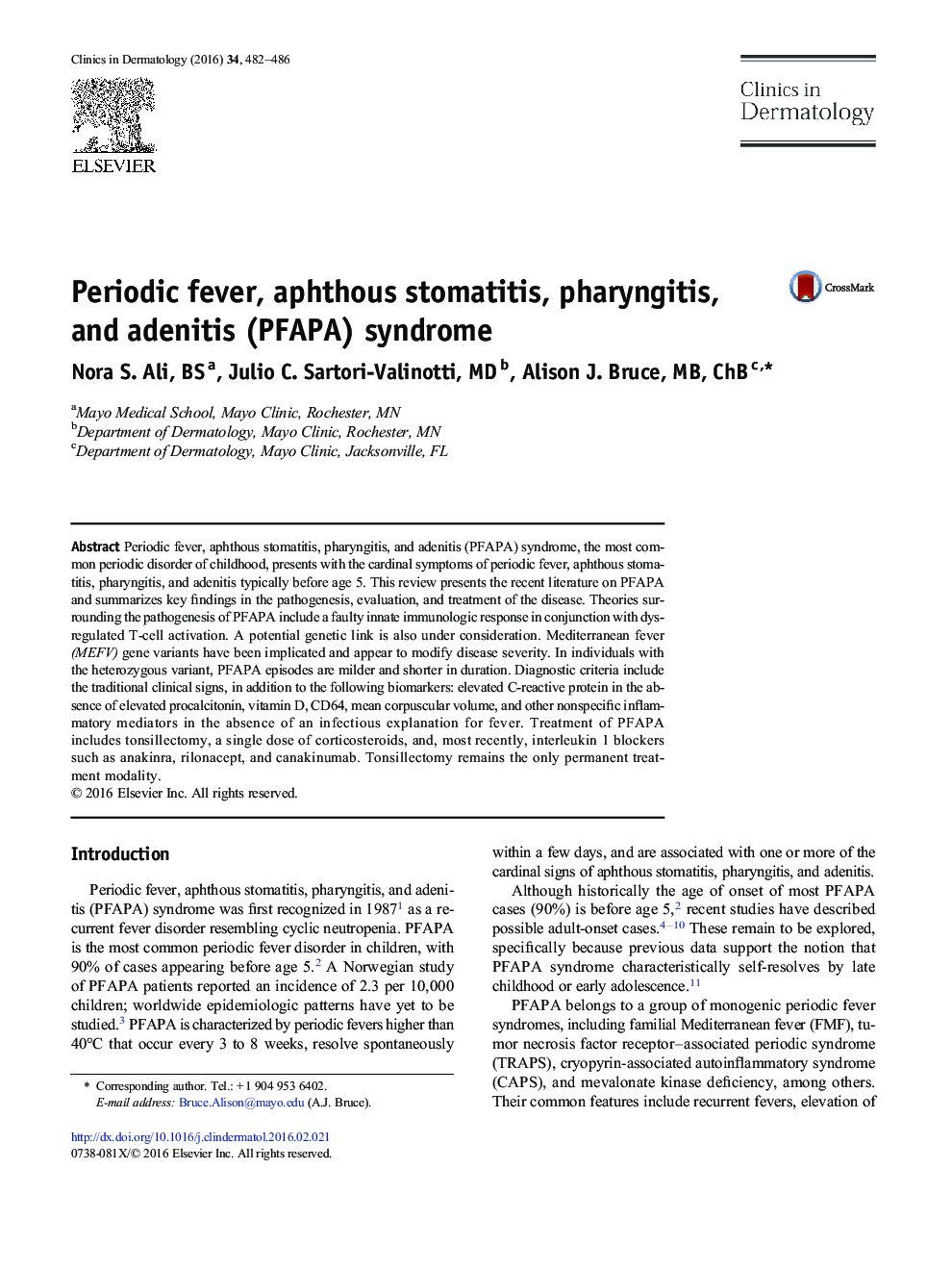| کد مقاله | کد نشریه | سال انتشار | مقاله انگلیسی | نسخه تمام متن |
|---|---|---|---|---|
| 3193959 | 1201369 | 2016 | 5 صفحه PDF | دانلود رایگان |
Periodic fever, aphthous stomatitis, pharyngitis, and adenitis (PFAPA) syndrome, the most common periodic disorder of childhood, presents with the cardinal symptoms of periodic fever, aphthous stomatitis, pharyngitis, and adenitis typically before age 5. This review presents the recent literature on PFAPA and summarizes key findings in the pathogenesis, evaluation, and treatment of the disease. Theories surrounding the pathogenesis of PFAPA include a faulty innate immunologic response in conjunction with dysregulated T-cell activation. A potential genetic link is also under consideration. Mediterranean fever (MEFV) gene variants have been implicated and appear to modify disease severity. In individuals with the heterozygous variant, PFAPA episodes are milder and shorter in duration. Diagnostic criteria include the traditional clinical signs, in addition to the following biomarkers: elevated C-reactive protein in the absence of elevated procalcitonin, vitamin D, CD64, mean corpuscular volume, and other nonspecific inflammatory mediators in the absence of an infectious explanation for fever. Treatment of PFAPA includes tonsillectomy, a single dose of corticosteroids, and, most recently, interleukin 1 blockers such as anakinra, rilonacept, and canakinumab. Tonsillectomy remains the only permanent treatment modality.
Journal: Clinics in Dermatology - Volume 34, Issue 4, July–August 2016, Pages 482–486
